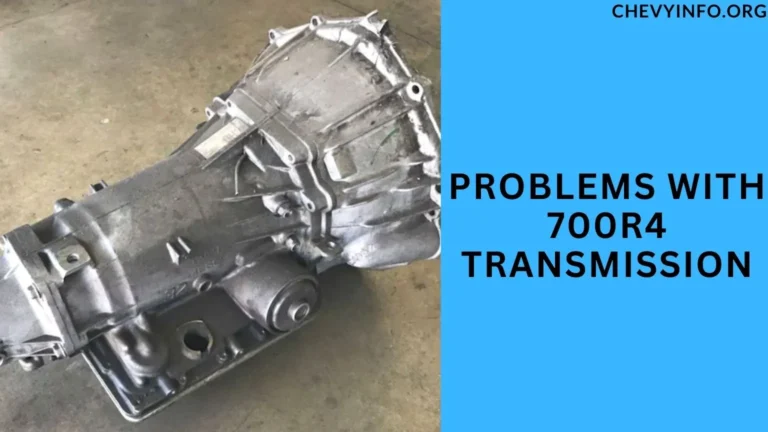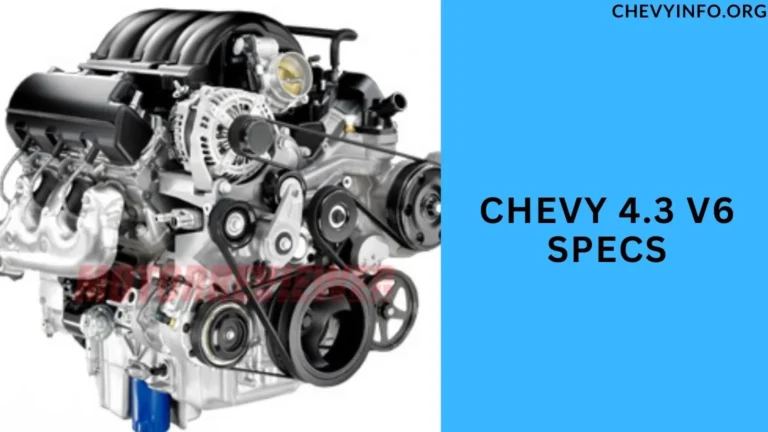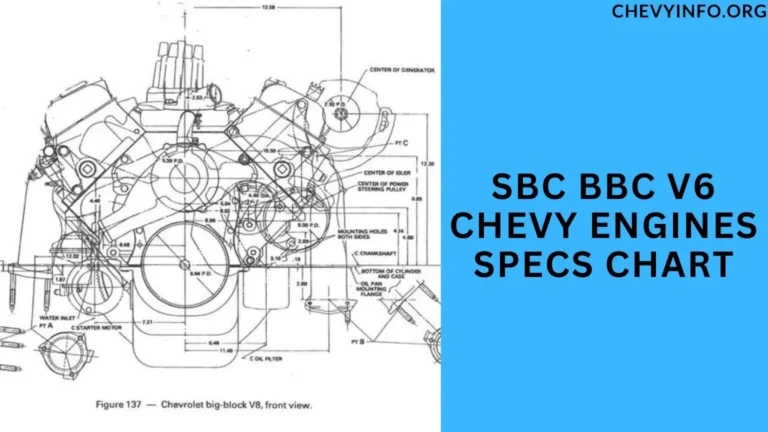SBC 350 Engine Weight, Space (Guide) of 2024
The SBC 350 engine has long been a staple in the automotive industry, renowned for its robust performance and versatility.
However, one crucial aspect that often goes underappreciated is its weight and the implications it carries.
In this article, we delve into the intricacies of the SBC 350 Engine Weight, and its impact on performance, and explore lightweight alternatives in the market.
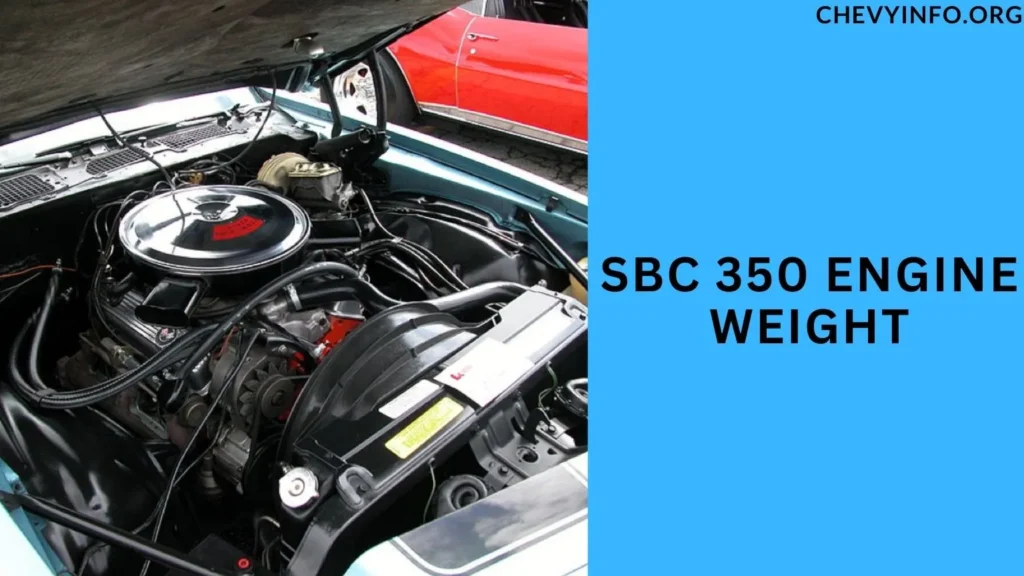
Introduction to the SBC 350 Engine
The SBC 350 engine, short for Small Block Chevy 350, stands as a testament to engineering excellence.
Its introduction in the late 1960s marked a revolution in the automotive world, offering a blend of power, reliability, and affordability.
Over the decades, it has powered a myriad of vehicles, from muscle cars to trucks, earning a loyal following among enthusiasts.
Understanding SBC 350 Engine Weight
Engine weight plays a pivotal role in a vehicle’s dynamics and overall performance. The weight of an engine affects various aspects, including acceleration, fuel efficiency, and handling.
Factors such as materials used, engine size, and design intricacies contribute to the final weight of the engine.
SBC 350 Engine Specifications
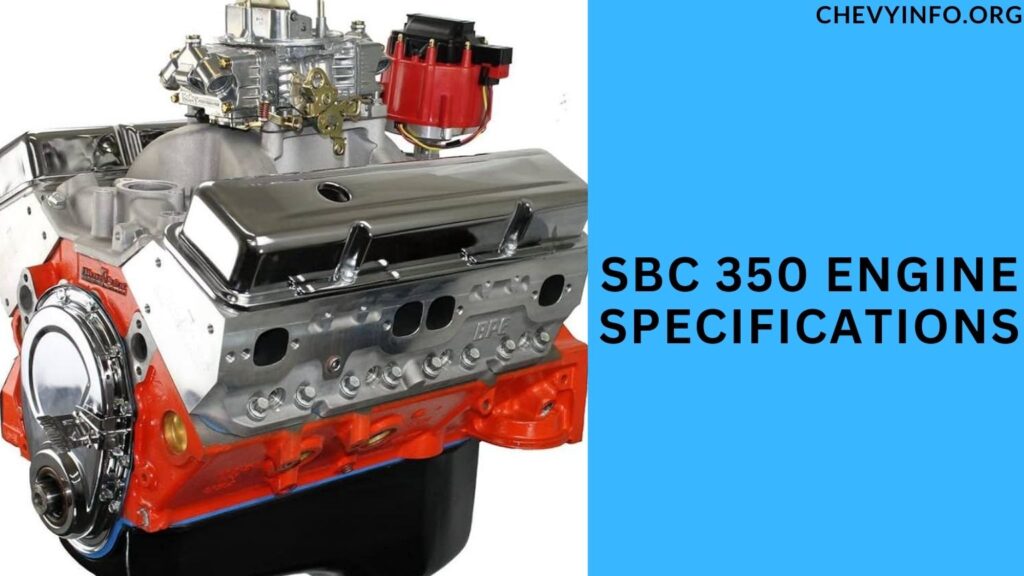
The SBC 350 engine typically weighs around 575 pounds (261 kg) in its stock configuration, including essential components like the block, cylinder heads, and accessories.
Comparatively, this places it in the mid-range concerning weight among similar engines, striking a balance between power and manageable weight.
Engine Type
- Type: V8, Small Block
- Displacement: 5.7 liters (350 cubic inches)
Configuration
- Cylinder Arrangement: V8 (8 cylinders arranged in a V configuration)
- Valvetrain: Overhead Valve (OHV)
- Fuel Delivery: Carbureted or Fuel Injected
Block and Components
- Block Material: Cast iron or Aluminum
- Cylinder Heads: Cast iron or Aluminum
- Crankshaft: Steel
Compression and Performance
- Compression Ratio: Varies depending on specific model and year (typically around 8.5:1 to 10.5:1)
- Horsepower Range: Typically ranges from 250 to 375 horsepower in stock configurations
- Torque: Varies based on setup, with torque figures commonly ranging from 350 to 400 lb-ft
Ignition System
- Ignition Type: Distributor-based ignition system (older models) or Electronic Ignition (modern variants)
- Spark Plugs: Typically use standard spark plugs, although performance versions may utilize specialized plugs
Cooling and Lubrication
- Cooling System: Water-cooled with a radiator and cooling fan
- Lubrication System: Full-pressure lubrication system with an oil pump
Fuel System
- Fuel Type: Gasoline (petrol)
- Fuel Delivery: Carburetor (older models) or Electronic Fuel Injection (EFI) for modern variants
- Fuel Requirement: Regular unleaded gasoline (octane rating may vary based on compression ratio and tuning)
Dimensions and Weight
- Weight: Approximately 575 pounds (261 kg) in stock configuration (may vary depending on components and accessories)
- Length: Varies based on setup and application
- Width: Typically follows standard V8 engine dimensions
Applications
- Vehicle Compatibility: Widely used in a range of vehicles including cars, trucks, hot rods, and marine applications
- Aftermarket Support: Extensive aftermarket support with performance parts and upgrades available for enthusiasts and racers
Environmental Compliance
- Emissions: Compliance with emissions regulations based on the model year and location (older models may require modifications for emissions compliance)
Impact of Engine Weight on Performance
The weight of an engine directly influences its power-to-weight ratio, a critical metric in determining a vehicle’s performance.
A lighter engine, relative to the vehicle’s overall weight, can result in improved acceleration, better fuel economy, and enhanced agility. However, a heavier engine may offer advantages in terms of durability and stability.
Lightweight Alternatives to the SBC 350 Engine
In recent years, advancements in engine technology have led to the development of lightweight alternatives to traditional engines like the SBC 350.
Engines utilizing aluminum blocks, composite materials, and innovative designs have emerged, offering reduced weight without compromising performance.
While these alternatives present enticing benefits, they also come with considerations such as cost and maintenance requirements.
Importance of Proper Weight Distribution
Beyond the engine itself, the distribution of weight within a vehicle is critical for optimal performance.
Balanced weight distribution enhances handling, cornering stability, and overall driving experience.
Manufacturers and enthusiasts often explore methods to achieve ideal weight distribution, including chassis design, suspension tuning, and component placement.
People also ask
How much does a 350 engine weigh?
A 350 engine typically weighs around 575 pounds (261 kilograms).
How much does a 5.7 short block weigh?
A 5.7 short block generally weighs approximately 190-220 pounds (86-100 kilograms), depending on the specific components and materials used.
How much does a SBC engine block weigh?
An SBC (Small Block Chevy) engine block typically weighs around 160 to 180 pounds (73 to 82 kilograms), depending on the specific model and configuration.
How much does a Chevy 327 engine weigh?
A Chevy 327 engine typically weighs around 550 to 575 pounds (250 to 261 kilograms), including essential components such as the block, cylinder heads, and accessories.
Conclusion
The weight of the SBC 350 engine is a multifaceted aspect that impacts both its performance and the overall dynamics of a vehicle.
While its traditional design may not prioritize lightweight construction, advancements in technology offer alternatives for those seeking a balance between power and weight savings.
Ultimately, understanding the implications of engine weight empowers enthusiasts and manufacturers alike to make informed decisions regarding performance and driving experience.

Henry Worner, a seasoned automotive expert with over 13 years of experience in car repair, maintenance, and performance enhancement, ChevyInfo.org was born out of a passion for Chevrolet vehicles. Henry’s deep-rooted love for everything Chevy has driven him to create a platform where fellow enthusiasts, car owners, and anyone interested in Chevy cars can find valuable insights, tips, and guidance.



